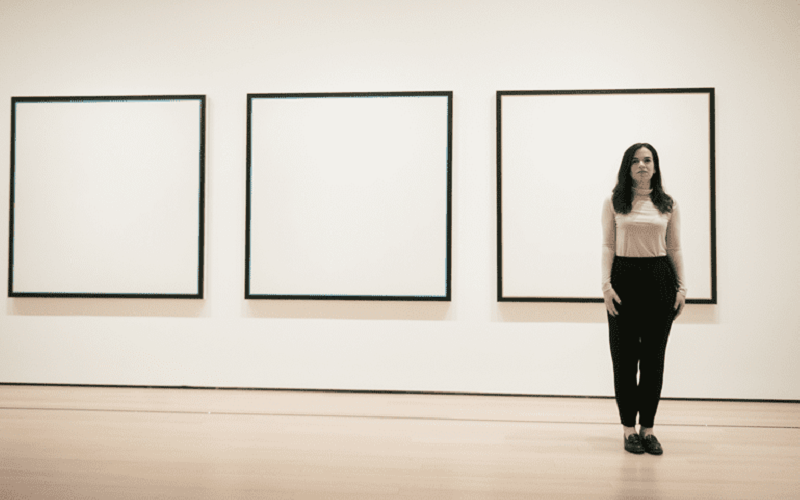
In a world increasingly cluttered with material possessions, digital overload, and relentless stimuli, the concept of minimalism emerges as a beacon of clarity and simplicity. But what impact does embracing minimalism have on our cognitive well-being? Minimalism, at its core, is more than just a design aesthetic or a decluttering exercise; it’s a deliberate choice to focus on what truly matters by stripping away the superfluous. It’s about finding freedom and tranquility in simplicity, which can have profound implications for our mental and cognitive health. From reducing cognitive overload to enhancing focus and concentration, the minimalist philosophy holds the potential to transform our minds as much as our environments.
Contents
Introduction to Minimalism and Cognitive Well-being
In an era characterized by excess and overstimulation, the concept of minimalism offers a contrasting approach to life. It’s a philosophy that advocates for the less-is-more principle, not just in our physical spaces but also in our mental landscapes.
Definition of Minimalism
Minimalism is often misconstrued as merely a trend in art and design, but its essence lies much deeper. It’s a lifestyle choice that emphasizes the importance of paring down to the essentials. In minimalist philosophy, the focus is on quality over quantity, cherishing experiences over possessions, and creating space – both physically and mentally – for what truly enriches our lives.
Overview of Cognitive Well-Being
Cognitive well-being refers to the health of our mental processes such as thinking, reasoning, and remembering. It encompasses our ability to concentrate, process information, and maintain a healthy mental state. In today’s fast-paced world, maintaining cognitive well-being is increasingly challenging, with distractions and stressors constantly vying for our attention.
Historical Perspective of Minimalism
The journey of minimalism is as intriguing as its impact on our lives. To fully appreciate the influence of minimalism on cognitive well-being, it’s essential to understand its roots and evolution. This historical perspective sheds light on how minimalism has shaped, and been shaped by, cultural and societal changes over time.
Origins of Minimalist Movement
The minimalist movement, while popularized in the mid-20th century, has its seeds in various ancient philosophies and practices. Zen Buddhism, which originated in Japan, is often cited as a significant influence due to its emphasis on simplicity, mindfulness, and the beauty of the understated. In the Western world, the minimalist art movement of the 1960s and 1970s, characterized by simplicity of form and a focus on the essentials, further propelled the concept into the cultural mainstream. This artistic expression was a reaction against the extravagance and overstimulation of the time, mirroring the current resurgence of minimalism as a counter to today’s digital overload and consumerism.
Evolution of Minimalism in Society
Over the decades, minimalism has evolved from an artistic and cultural movement into a broader lifestyle choice. In the 21st century, minimalism has become synonymous with a conscious way of living that prioritizes experiences over possessions, quality over quantity. This shift reflects a growing awareness of the impact of consumerism on the environment and mental health. The digital age, with its constant bombardment of information and stimuli, has further highlighted the need for simplicity and focus, making minimalism more relevant than ever in the context of cognitive well-being [1].

Theoretical Framework of Minimalism
To grasp the full impact of minimalism on cognitive well-being, it’s crucial to look into the psychological theories that underpin this relationship. These theories provide a foundation for understanding how and why reducing physical and mental clutter can lead to enhanced cognitive health.
Psychological Theories Supporting Minimalism
One key theory is the concept of cognitive load, which suggests that our mental capacity is limited. Excess stimuli, whether physical clutter or information overload, can overwhelm our cognitive resources, leading to decreased efficiency in processing information and decision-making. Minimalism, by reducing this excess, can potentially lower cognitive load, thereby enhancing cognitive function.
Another relevant theory is the Attention Restoration Theory (ART), which posits that exposure to environments with lower levels of sensory input (like a minimalist space) allows the brain to recover and restore its ability to concentrate and focus. This theory supports the idea that minimalist environments are conducive to better cognitive health by providing a respite for our overstimulated brains [2].
Connection Between Physical Space and Mental Space
The interplay between our physical environment and mental state is a critical aspect of this discussion. The Environment-Behavior Theory suggests that our surroundings significantly influence our behavior and mental processes. A cluttered space can lead to a cluttered mind, manifesting as stress, anxiety, and reduced cognitive clarity. Conversely, a minimalist environment, characterized by order and simplicity, can promote a sense of calm and clarity, fostering better cognitive health.
These theoretical frameworks offer valuable insights into how minimalism can positively influence our cognitive well-being. They not only support the notion that less can indeed be more when it comes to our mental health but also provide a scientific basis for the minimalist approach to living.

Minimalism and Cognitive Health
Building on the theoretical framework, we now turn our attention to the direct impact of minimalism on cognitive health. Here we focus on how adopting minimalist principles in our daily lives can have tangible benefits for our mental functions such as memory, attention, and stress management.
Minimalism Reduces Cognitive Overload
One of the most significant benefits of minimalism is its ability to reduce cognitive overload. In our modern world, we are constantly bombarded with information, choices, and stimuli. This continuous stream can overwhelm our cognitive resources, leading to decision fatigue, reduced attention span, and increased stress levels. Minimalism, by streamlining our environment and lifestyle, can help mitigate these issues. It simplifies decision-making processes, reduces distractions, and creates a more peaceful and focused mind space, thereby preserving cognitive energy for more important tasks [3].
Minimalism Enhances Focus and Concentration
Minimalism also plays a crucial role in enhancing focus and concentration. By eliminating superfluous items and distractions from our environment, it allows our minds to focus more effectively on the task at hand. This is particularly beneficial in work and study environments, where concentration is key. A minimalist approach, free from clutter and unnecessary interruptions, can lead to improved productivity and efficiency, allowing for deeper and more focused work.
Impact of Minimalism on Stress and Anxiety Levels
The minimalist lifestyle can significantly impact our stress and anxiety levels. A cluttered environment often reflects and contributes to a cluttered mind, which can heighten feelings of stress and anxiety. By creating a more organized and serene space, minimalism promotes a sense of calm and control. This reduction in physical clutter translates to a reduction in mental clutter, leading to lower stress levels and a more harmonious mental state. Furthermore, the act of decluttering itself can be therapeutic, offering a sense of accomplishment and mental relief [4].
Minimalism in the Digital Age
In the context of the ever-expanding digital universe, the principles of minimalism gain new relevance and challenges. Here we explore how minimalism can be applied in the digital realm, a space increasingly dominating our daily lives and impacting our cognitive health.
Digital Clutter and Cognitive Function
The concept of clutter extends beyond physical spaces to include our digital environments. Digital clutter, such as an overflowing email inbox, excessive social media consumption, and unorganized digital files, can be just as overwhelming as physical clutter. This type of clutter can lead to decreased productivity, increased anxiety, and difficulty in processing information. By applying minimalist principles to our digital habits, we can reduce cognitive load, enhance focus, and improve overall digital wellbeing. This includes practices like regular digital detoxes, mindful use of technology, and organizing digital spaces for efficiency.
Strategies for Digital Minimalism
Digital minimalism involves consciously reducing our digital footprint and interactions. It’s about choosing to engage with technology in a way that adds value to our lives, rather than detracts from it. This can be achieved through various strategies, such as setting specific times for checking emails and social media, unsubscribing from unnecessary digital communications, using technology to automate repetitive tasks, and being more selective about the digital content we consume. The goal is to create a digital environment that supports, rather than hinders, cognitive health and productivity [5].
The Role of Technology in Promoting or Hindering Minimalism
While technology can often be a source of distraction and stress, it also has the potential to aid in the pursuit of minimalism. Certain digital tools and apps are designed to help streamline tasks, organize information, and reduce digital clutter. However, the challenge lies in using technology in a way that aligns with minimalist values – focusing on functionality and efficiency rather than excess and distraction. It’s about finding a balance where technology serves as a tool for simplification and not as a source of constant engagement or distraction.
In the digital age, minimalism takes on a new dimension, extending its principles to our online behaviors and digital interactions. By applying minimalist practices to our digital lives, we can mitigate the negative impacts of technology on our cognitive health, fostering a more balanced and mindful relationship with the digital world.
References
[1] The Impact of Minimalism on Mental Health and Well-being
[2] Towards a Theory of Minimalism and Wellbeing
[3] Goodbye materialism: exploring antecedents of minimalism and its impact on millennials well-being
[4] Why Cognitive Flexibility Is Vital for a Minimalist Lifestyle
[5] How Minimalism Can Improve your Mental Health

